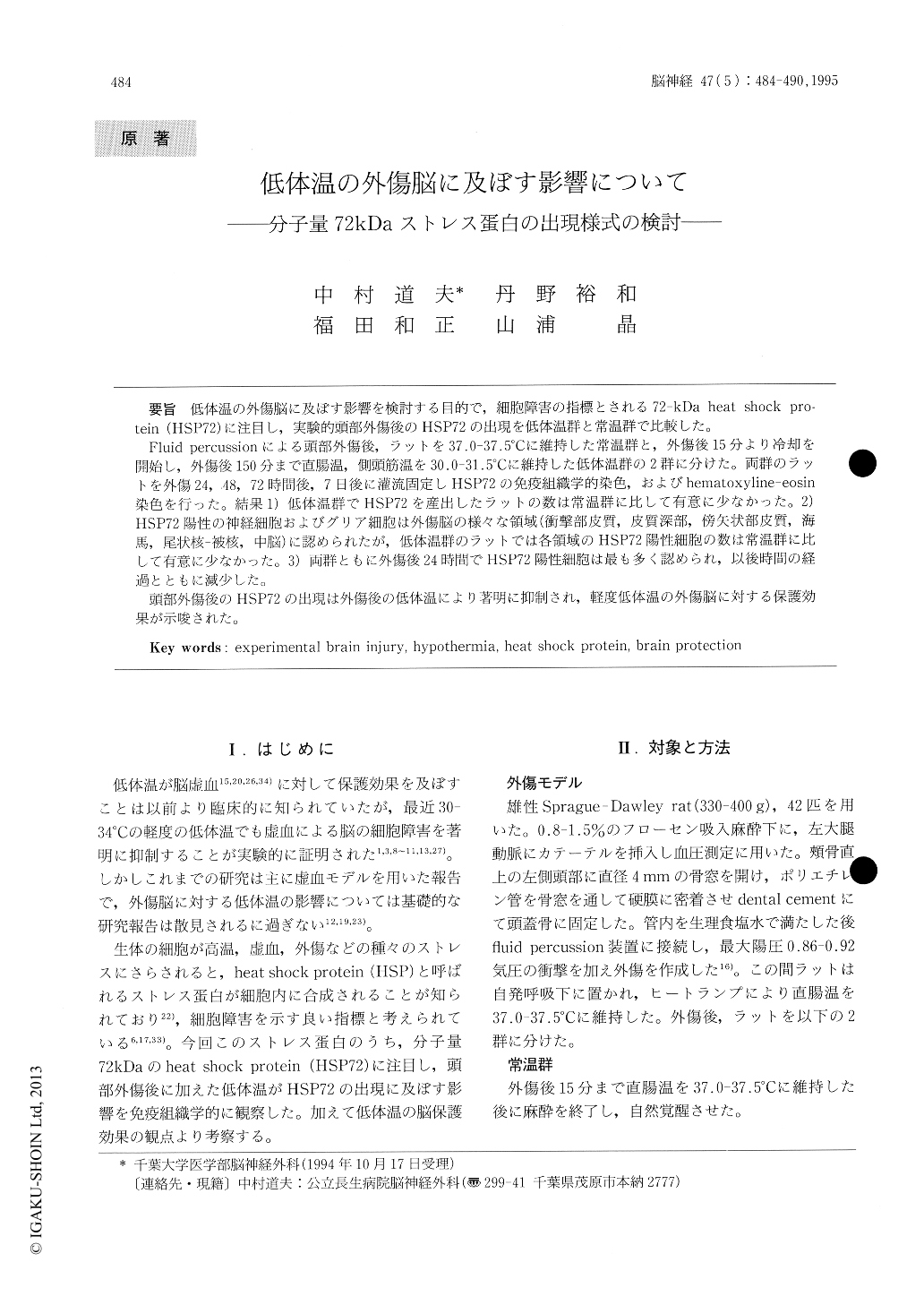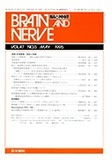Japanese
English
- 有料閲覧
- Abstract 文献概要
- 1ページ目 Look Inside
低体温の外傷脳に及ぼす影響を検討する目的で,細胞障害の指標とされる72—kDa heat shock pro—tein(HSP72)に注目し,実験的頭部外傷後のHSP72の出現を低体温群と常温群で比較した。
Fluid percussionによる頭部外傷後,ラットを37.0-37.5℃に維持した常温群と,外傷後15分より冷却を開始し,外傷後150分まで直腸温,側頭筋温を30.0-31.5℃に維持した低体温群の2群に分けた。両群のラットを外傷24,48,72時間後,7日後に灌流固定しHSP72の免疫組織学的染色,およびhematoxyline-eosin染色を行った。結果1)低体温群でHSP72を産出したラットの数は常温群に比して有意に少なかった。2)HSP72陽性の神経細胞およびグリア細胞は外傷脳の様々な領域(衝撃部皮質,皮質深部,傍矢状部皮質,海馬,尾状核—被核,中脳)に認められたが,低体温群のラットでは各領域のHSP72陽性細胞の数は常温群に比して有意に少なかった。3)両群ともに外傷後24時間でHSP72陽性細胞は最も多く認められ,以後時間の経過とともに減少した。
頭部外傷後のHSP72の出現は外傷後の低体温により著明に抑制され,軽度低体温の外傷脳に対する保護効果が示唆された。
Recent studies have demonstrated that mild hypothermia protects brain from ischemic insults. In the present study, we investigated the effects of mild hypothermia on stress responses of the neurons and glia after experimental brain injury. We evaluated the immunocytochemical expression of 72kDa molecular weight heat shock protein (HSP72) as a marker of cellular injury.
Adult male Sprague-Dawley rats were subjected to a lateral fluid percussive injury. After injury the animals were divided into two groups (normother-mic and hypothermic groups).

Copyright © 1995, Igaku-Shoin Ltd. All rights reserved.


